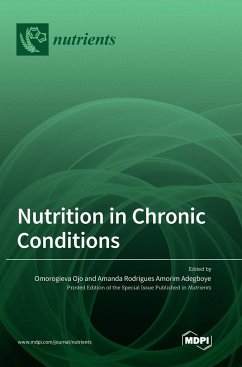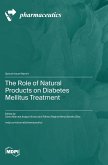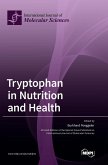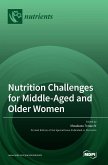The effects of nutrition on chronic conditions, such as diabetes, obesity, heart disease, and stroke, continue to generate interest among researchers. This is because diet is a modifiable risk factor. The composition of diet, including the proportions and types of macronutrients and micronutrients, is a major contributor to chronic diseases. The beneficial effects of nutritional interventions on chronic conditions have been well documented, although differences remain among researchers concerning their overall impact. The evaluations of the role of nutrition in chronic conditions draw on diet's effects on body weight, body composition, glycemic, and insulin excursions, and vascular remodeling. The effect of diet in modulating gut microbiota dysbiosis is also an evolving area of research. This Book, entitled "Nutrition in Chronic Conditions", aims to examine the effect of nutrition in the development, care, and management of chronic conditions. This Book includes 11 original studies conducted in high- and middle-income countries, 3 systematic reviews with meta-analysis, and 3 literature reviews. The topics covered in the Book include: the effects of diet on (1) insulin and glucose metabolism; (2) gut health; (3) brain and cognitive impairment; (4) infections, chronic conditions, malnutrition, and all-cause mortality; (5) obesity and dietary variables in post-menopausal women; (6) non-alcoholic fatty liver disease in mice, specifically with the consumption of coffee; and (7) chronic conditions and COVID-19 infection.
Hinweis: Dieser Artikel kann nur an eine deutsche Lieferadresse ausgeliefert werden.
Hinweis: Dieser Artikel kann nur an eine deutsche Lieferadresse ausgeliefert werden.








